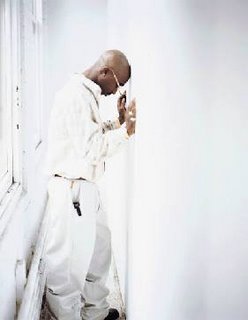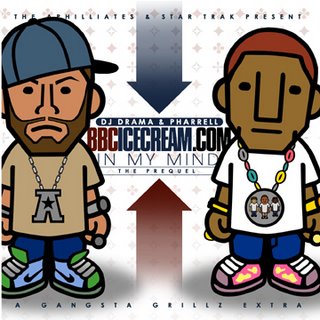
Life Lessons I Learned From Tupac Shakur
I learned a lot from Tupac Shakur. I am thankful to have known him, and to have considered him a friend. I am sad and angry that he is no longer here. I am angry at the music industry, and at all of the artists that have let Hip Hop become what it has become. Before he passed, Pac predicted much of what I am seeing now. He was one of the most enlightened and prolific people I’ve known. Those who really knew him understand what I mean when I say: Tupac, the artist, was only the scratching of the surface.
Anyway, I learned a lot from Pac. On the business side, I learned that if you make a great song you will create a few temporary fans, but if you touch the people, you will build a fan for life. Pac built fans for life.
When he used to tour early in his career as the opening act, after he performed he’d go into the crowd without security and interact with the fans. I remembered him telling me that he had performed at a stadium show with Scarface back when folks really didn’t know who Tupac was. After performing, he went out the back door of the coliseum, around to the front doors, and came in and stood with the crowd in the back of the stadium to watch the show. He took pictures with fans and signed autographs until he was the last person to leave the venue. He signed every last autograph. His fans were able to feel him and touch him often. He built fans for life, not just temporary fans of his music who’d buy a CD. His work ethic was unsurpassed.
When Pac passed away, everyone had a Tupac story to tell about how they met him, or when he was at such and such place, or how they saw him do blasy blah. The one thing everyone said about him was that he was “real.” That was a big part of his appeal. He built his fans one by one, and people knew he was “real” by seeing him and interacting with him.
On the human nature side, I also learned a lot from Pac. He taught me that no good deed goes unpunished. He told me that as people did things to help others advance in their careers, once they advanced they would go on to grow without the folks who helped them get to that level. He educated me to the fact that no matter how much I did for someone else, and no matter how instrumental a part I played in their career, that they would go on to forget me, often even writing me out of their history for no apparent reason. I argued with him about this lesson, adamantly denying people could be so cold and heartless. He was right.
Over the years, I watched people I had supported and helped build, grow and move beyond me, especially when it came time to honor a contract by writing a check. As they grew in their careers to discuss how they got started, they magically did it all by themselves. This became the norm. I watched many artists take hundreds of thousands of dollars from street entrepreneurs in order to survive as they were coming up in the industry trying to get on, only to shit on their benefactors once they got signed to a record deal. In the case of one Chicago rapper, I saw him do it to four different gangstas over a five year period--it’s a miracle he’s still alive today.
I read interviews from incarcerated rappers talking about how no one supports them while they were in prison. I guess all the books and letters I send don’t count. I do this for EVERY rapper locked down whether I know him (or her) or not. One rapper even went so far as to name in an interview the only two people who “held him down while he was locked up,” and both of them I asked to put money on his books because no one else was.
Pac taught me that the majority of people are motivated by greed and have short term memories. He also taught me that some people, when they are helped by another, can’t live with that thought and are reminded of their dependency on another (viewed somehow as a weakness) every time they look at or think about that person, they have to move on in order to feel better about themselves. Too bad the 48 Laws Of Power wasn’t out when Pac was alive. He would have loved that book. Some of what I learned from him was so eloquently explained in that book.
In terms of human nature, Pac informed me that often if you give a person an inch, they will take a foot, and that if you do something for someone, they will expect more and more. He taught me that familiarity breeds contempt--you can tell your crew something over and over, but when an outsider comes in and says the same thing, all of a sudden they listen. The people closest to me were the ones who paid others for services identical to what I was famous for providing successfully in outside circles. To this day, the majority of artists I am closest to, have never asked me to negotiate a deal for them and consequently keep getting stuck in bullshit deals.
Pac taught me that if you give something away for free, it will be received as though it has no value because it was given with no value attached. These were lessons I did not learn well, and still have not. Pac believed that people respect fear and power, and if you are giving something away or helping people, it could be misconstrued as a weakness, which removes all respect. In my opinion, although he believed in helping people to some extent, he was torn by their reaction to the help.
Tupac Shakur was the first board member of Rap Coalition in 1996. We argued often about Rap Coalition helping artists for free. I was not, and still am not, willing to accept the fact that I have to charge artists who are in need of help, in order to gain their respect and recognition. He felt that even if I helped the most destitute and neediest of artists, there should be a price attached. I believed artists would be grateful and would give back to help other artists out of sheer remembrance of what it was like to be in such a bad position. Pac may have been right, and if so, I still have not learned this heartbreaking lesson.
I learned from Pac that rather than argue over some dumb shit with somebody, there must be a price for their ignorance. He used to tax people (I can’t repeat what he used to call it because it involves a racial epithet that I am not willing to utter, so for the sake of this article, I will call it “Knucklehead Tax”). This was my favorite lesson that I learned from him. When I was negotiating one of my first deals, the label irritated me over and over, and I applied Pac’s philosophy. Every time the label pissed me off, I upped the price of the deal $50,000. After adding an additional $200,000 to the deal in knucklehead tax, I felt better and the artist was thrilled. The label never knew what was going on, but I felt vindicated. I never had to raise my voice or burn a bridge. I just taxed them and raised the value of the deal naturally.
I do this with the many people whom I have tried to help in the past but they didn’t listen. Somehow they end up back on my doorstep asking for help, and now there is a price involved. It’s knucklehead tax—they acted like a knucklehead, so now if they want to be down, there’s a price. Oddly, no one has noticed yet. It still saddens me that many of Pac’s lessons about human nature are true. I prefer seeing the world through rose color glasses, and that’s just not realistic. Pac was more Machiavellian in his approach to human nature. In fact, he read The Prince when he was in high school and I sent it to him when he was in prison because it reminded me of how he thought about human nature. He had no rose colored glasses; he had a microscope.
So the next time you hear me speak, or read an article and you think I am angry, bitter, or negative, please just understand that after doing this for 13 years, I have seen a lot of ugliness and watched a lot of people act a fool over something as replaceable as money. Pac always said ignorance is bliss, and I have found this industry to be very, very blissful.















